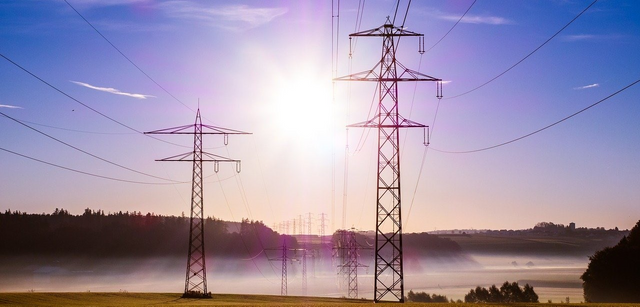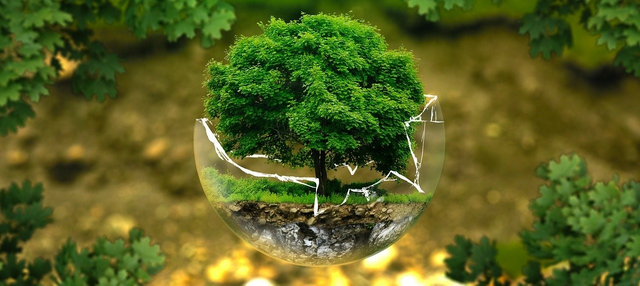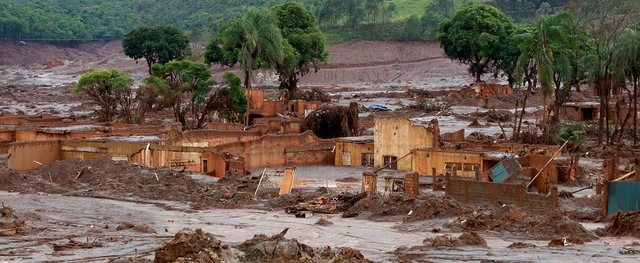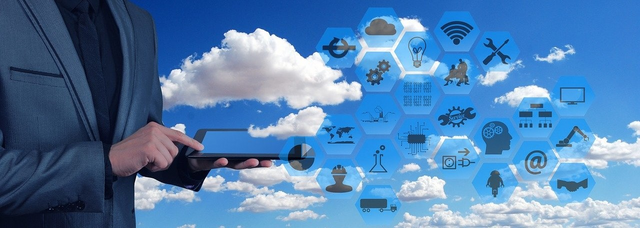Environmental Impacts #8 - Smartphones
We choose the devil we know because the devil we don't know maybe worse. It is a terrible choice we make in our lives. We accept what life gives us, as usual, don't ask to understand the consequences of our actions. We are only partly responsible for this decision path.
Welcome to an era of ignorance brought to you by societal bliss.
 Image by Pexels from Pixabay
Image by Pexels from PixabayPrologue
It Changed Our Path of Evolution
 Image by Pexels from Pixabay
Image by Pexels from PixabayIt happened in January of 2007 (History). Apple released its first iPhone.
Apple made what other companies failed to make in their attempts at creating a smartphone. They created a product that accessed all of the world's knowledge from the palm of your hand. It made the world a little bit smaller. The smartphone successfully combined multiple applications into one device.
Never has one product in our generation had such a profound impact on society. The effect on my life was immediate regarding education. Never again did I need to carry schoolbooks. I had it all available on my phone. I also didn't need to worry about logging in to a computer if I was traveling.
Introduction

Image by Robert Fotograf from Pixabay
Welcome, fellow Steemians, to our eighth installment of the Environmental Impact Series. During our series, we discuss how various elements on Earth impact our environment, lives, and society.
In this post, we will discuss the smartphone. We will cover its basic production. Finally, we will cover how these processes impact our environment.
In our Environmental Impacts series, we discussed how various events or elements impact our environment. Environment Overview, volcanoes, mercury, wildfire, inferno, climate change, and black gold are topics we've covered in the past that continue to affect us today.
Join us now as we continue to the topic of smart technologies.
What is Smart Technology?
 Geralt from Pixabay
Geralt from PixabayIn this article, we define smart technology as technology represented in smartphones, tablets, or smartwatches. Since these technologies are similar, we will only refer to smartphones for the duration of this article.
Resources to Reality
The above video, "What's in your iPhone," briefly covers some of the resources that go into bringing about a customer's iPhone. The video describes Apple's manufacturing and distribution processes as complicated, and they aren't kidding.
Overall, Apple uses 43 countries spread out between 6 continents to create their products (CNBC). The smartphone components, in total, uses over half of the elements in the periodic table (CNBC)! We haven't even begun to speak about the number of precious resources also needed to make the smartphone function the way it does. Businesses rise and fall at the behest of the smartphone industry.
Energy and Smartphones
 Image by Michael Schwarzenberger from Pixabay
Image by Michael Schwarzenberger from PixabayApproximately 3.2 billion smartphones existed in 2019 (Milijic - Leftronic). In 2021, Statista predicts that the number will rise to almost 4 billion devices (Statista).
Vaclav Smil, in his article "Your Phone Costs Energy - Even Before You Turn It On", performs an excellent job comparing the estimated energy cost of cell phone production versus car manufacturing. He calculates that the energy cost for, at least the creation of smart devices, amounts to the value of 1 exajoule per year based upon 2015 values (550,000 metric tons) for smart device production.
Now, global analysis of power production utilizes the units MTOE (Millions of Tons of Oil Equivalent). They convert the measured output of all the world's forms of power into an equivalent value if we only used oil to generate electricity (Global Energy Statistical Yearbook 2019).
In 2018, the total power output of our global society was approximately 14,000 MTOE (Global Energy Statistical Yearbook 2019). The approximate value converts to about 586 exajoules. In the grand scheme of things, smart technology consumes a small fraction of global power. However, that's still a vast amount of energy that requires the use of resources like fossil fuels.
The provided data does not include energy costs due to the uses of more than one phone or replacement of devices. Additionally, it doesn't take into account the costs to power the network needed to make the connectivity of the smart tools work on a global scale.
Oh, and remember, fossil fuels still account for a majority of global energy consumption.
Disadvantages - Environmental Impacts

Image by ejaugsburg from Pixabay
If we change something in an ecosystem, we impact it. Regardless of how small the impact, we cause change occupying the space of our surroundings. When walking through a forest, for instance, we could displace branches, leaves, or build a campfire to keep warm at night. Hopefully, upon our departure, we recognize the impact we have made to ensure that we can restore the area as much to the original condition as possible.
Mining

We can't have smart technology without minerals and metals. Industries can't afford to drain available resources, so that means we must mine what we need from the ground. The process, however, doesn't stop once you start mining. You'll still need to process what you extract to end up with the necessary materials.
Sometimes, things go wrong.
Bento Rodrigues
 Patrick Byme et al - Phys.Org CC BY-SA 4.0
Patrick Byme et al - Phys.Org CC BY-SA 4.0 Patrick Byme et al - Phys.Org CC BY-SA 4.0
Patrick Byme et al - Phys.Org CC BY-SA 4.0A damn failure predicted as a worst-case scenario by the mining company, occurred leading to the deaths of innocents and decimation of wildlife and the local environments (Dom Phillips - The Guardian). A damn failure unleashed Approximately 40 million liters of toxic water upon the environment. The community of Bento Rodrigues no longer exists (Dom Phillips - The Guardian).
I will say this about the disaster. If a nuclear power plant were to predict something similar, we would be required, by law, to report that prediction. From the Institute of Nuclear Power Operations, all the way to the Nuclear Regulatory Commission, we would have to describe the predicted event, the likelihood of it occurring, and the steps we took to prevent it from happening. The option isn't there to defer.
Environmental protection must start from the cradle (planning to mine for resources) to the grave (disposal of end-use wastes at each manufacturing, production, and distribution point) to truly minimize or mitigate environmental and societal problems.
Sweatshops?
 RichardMc - Pixabay
RichardMc - PixabayThe human sacrifice doesn't always end in the death of a human being. The sacrifice could be a death sentence of endless and repetitive toil for meager pay that merely gets you through the day. Eventually, we will all pass into the next life. What I'm confident of that we all prefer is a life with at least some modicum of time to ourselves or a path of appreciation.
The reality of life is that, in society, we must sacrifice to gain the things we need and desire. Depending on where you are born, you may not have many options. In the case of the iPhone, many Chinese workers find themselves in what the world describes as sweatshops. One NYU graduate student spent six weeks assembling iPhones to experience life within that factory. The video below outlines his experience.
I don't know the background of everyone reading this article. I understand that some people lead a harder life than others. I felt that their day-to-day lives reminded me of my time in the military onboard a submarine. Many times, we had mundane and repetitive tasks to perform. We had social restrictions we needed to follow to gain entry back into the ship.
The most significant difference, however, was pay. Military personnel has a graded pay structure based upon rank and time in service. Wages can adjust depending on the area they're stationed. A standard $450/month salary doesn't seem like much for the work described, Since so many people are working there, I imagine that the standard of living supports that wage. So, all-in-all, I wouldn't consider the work described in the video as being part of a sweatshop, but that's only my opinion. Not everyone can work everywhere.
Advantages
 Image by Gerd Altmann from Pixabay
Image by Gerd Altmann from PixabayConnectivity
The arrival of the smartphone affected billions of lives on this planet. Nearly instant communication. The world's knowledge is accessible from the palm of your hand. Social media allows for the discussion of an almost innumerable number of topics. More likely than not, all of us can discuss the positive aspects the use of the iPhone brought to our lives.
Increased Awareness & Commitment
Faster communication within society allows us to discuss the negative aspects of this smart technology. Resource conservation, for instance, is one of them.
Companies began to commit to recycling as many unused smartphones throughout the industry. Apple, for instance, has the goal of creating iPhones only from 100% recyclable material. Surprisingly, there is progress on that goal. For example, Apple now constructs the iPhone with many, and there is progress, as discussed in the below video.
Environmental Summary
Smartphones and similar technology have brought the world closer together and committed many of Earth's resources towards their construction. From the resources mined for manufacturing to the people assisting you in the sale of a smartphone, hundreds of thousands of people participate in the lifecycle of a device that continues to add convenience to our daily activities.
There are, of course, negative aspects when trying to understand the impacts of smart technology. It appears, however, that the world takes notice and is actively trying to minimize the issues brought about from this tech. Regarding environmental impacts, I was surprised to learn the actions Apple is taking in this industry. I would not have expected a company to commit itself so wholeheartedly to using recycled materials and reducing their energy consumption.
I was also surprised about the work getting done at the factory level. I have to admit, the stories I read of suicides at Foxconn and sweatshops painted a much darker picture than I observed from the videos embedded in this article. However, I am writing this with an opinion influenced by an edited video. I don't know if what I saw was genuinely realistic. In my youth, I was able to tolerate a lot more punishment in return for a dollar than I am now as a middle-aged man with a family.
In Closing

Image by Gerd Altmann from Pixabay
Thanks again, fellow Steemians, for following on with this series. It's been a great ride, and I've appreciated all the reviews and votes from the Steem and STEM Communities.
Each topic presented poses different challenges during research. It is essential to cite all available references for this work to ensure that all readers can validate the information presented as they desire. The goal, ultimately, is the dissemination of accurate and thoughtful information. Unfortunately, some topics are more difficult to research than others.
Your thoughts?

Image by Free-Photos from Pixabay
What was your favorite article of this series? Is there anything else you'd like to see covered? Share your thoughts by entering your comments below!
Related Posts
| Volcanoes | Mercury | Wildfire | |
 |  |  |  |
| Inferno | Climate Change | Black Gold | Biomass |
 |  |  |  |
Great article though. The most Interesting part of this article for me was the Advantages Section, which i totally agree 👍
Thanks for sharing. Kudos
@bravedevelopment
Thank you for your response and support. It's hard to knock such a fascinating technology until you get down into the gritty details about its development. At the same time though, you can't report on the negative aspects of this technology without it. Changes to these processes would be so much slower without the use of smartphones. It's a double-edged sword.
Congratulations @scholaris! You have completed the following achievement on the Steem blockchain and have been rewarded with new badge(s) :
You can view your badges on your Steem Board and compare to others on the Steem Ranking
If you no longer want to receive notifications, reply to this comment with the word
STOPscholaris, you've just received an upvote of 100% by delegationvoter!
Learn how I will upvote each and every one of your posts
Check out today's daily report detailing my current upvote power and how much I'm currently upvoting.
This bot is open source.
Clone it from github
Get help installing and running this bot
This post has been voted on by the SteemSTEM curation team and voting trail. It is elligible for support from @curie and @minnowbooster.
If you appreciate the work we are doing, then consider supporting our witness @stem.witness. Additional witness support to the curie witness would be appreciated as well.
For additional information please join us on the SteemSTEM discord and to get to know the rest of the community!
Thanks for having used the steemstem.io app and included @steemstem in the list of beneficiaries of this post. This granted you a stronger support from SteemSTEM.